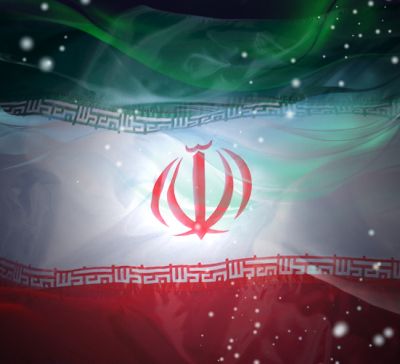Iran President Urges Embrace Of Internet

Iranian President Hassan Rouhani says the Internet is an ‘opportunity’, and connection speeds will improve – but censorship continues
Iranian President Hassan Rouhani has said the Internet should be seen as an “opportunity”, as he continues to promote an approach to new technologies that differs sharply from that of his predecessor, Mahmoud Ahmadinejad, who was President from 2006 to 2013.
Rouhani said that Iran should work with Internet technologies rather than seeking to block them wholesale, comparing such an attitude to bringing a wooden sword to a gunfight. Rouhani made the remarks at a speech in Dubai over the weekend that was reported by Reuters on Tuesday, citing the official IRNA news agency.
Ironically, his remarks come as an Internet storm gathers over the arrest of several young Iranians for dancing in a Youtube video where women were not wearing hijabs.

‘Opportunity’
“Cyberspace should be seen as opportunity: facilitating two-way communication, increasing efficiency and creating jobs,” Rouhani stated via his Twitter account.
Ahmadinejad’s eight-year term was marked by the violent suppression of mass street demonstrations in 2009 that had been organised using social media tools.
Rouhani, for his part, has said that a different approach is necessary for dealing with the challenges faced by the spread of new technologies. These challenges have included cyber-attacks by other nation-states, including a computer worm known as “Stuxnet” which, according to a 2012 book and former NSA contractor Edward Snowden, was developed by the US and Israeli governments, and which infected Iran’s nuclear centrifuges in 2010. The Anonymous hacking group attacked Iranian government servers in 2011, and Iran’s systems were hit by the Duqu and Sars worms in the same year.
“Even if there is an onslaught, which there is, the way to face it is via modern means, not passive and cowardly methods,” Rouhani reportedly said. “Why are we so shaky? Why have we cowered in a corner, grabbing onto a shield and a wooden sword, lest we take a bullet in this culture war?”
‘Right’ to connect
He compared Iran’s previous Internet policy to earlier efforts to block the spread of satellite television, something now common in Iran, and noted that the country’s PhD students use Internet technologies for their research.
“We ought to see (the Internet) as an opportunity. We must recognize our citizens’ right to connect to the World Wide Web,” Rouhani reportedly said.
He launched four communications projects, and said efforts to improve Internet speeds are underway, at the same time emphasising that Iran should rely as much as possible upon domestic software and hardware, according to an IRNA report.
“Government unhappy with current situation; working to increase Internet speed for users at home, in offices and on mobiles,” he said via Twitter. He called fast Internet connections the “right of every Iranian”, according to IRNA.
Iran’s two-sided approach to the Internet is demonstrated by the fact that Supreme Leader Ayatollah Ali Khamenei joined Twitter in 2009, often publishing a dozen messages per day in English, Farsi and Arabic, while also setting up an Internet oversight agency in 2012 in an effort to manage “the increasing spread of information and communication technologies, particularly that of the global Internet network and its important role in personal and social life”.
The country’s reputation for intolerance continues however. Seven or more young people from Tehran have been arrested over a video of them dancing to Pharrell Williams’ hit Happy which became a hit on Youtube. The video was apparently removed because it offended the Iranian government: “After a vulgar clip which hurt public chastity was released in cyberspace, police decided to identify those involved in making that clip,” Tehran police chief Hossein Sajedinia said, according to ABC News.
Sites blocked
Websites such as Twitter, Facebook and YouTube are blocked for most Iranians, and Abdolsamad Khoramabadi, secretary of a government committee that monitors and filters sites, last year called Facebook a US espionage project, echoing earlier comments by some observers within the US itself.
Earlier this month security researchers noted a rise in the sophistication of digital attacks stemming from Iran, after incidents involving US defence and dissidents within and outside the country.
Last year Iran launched a government email service for all citizens.
Are you a security pro? Try our quiz!